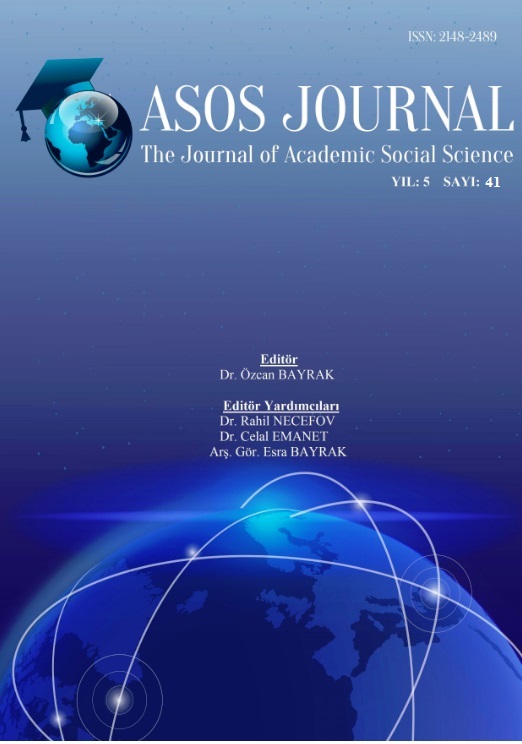Author :
Abstract
2000’li yıllarla birlikte Türk eğitim sisteminde yer alan ders programları yenilenerek yapılandırmacılık, öğrenci merkezlilik ve çoklu zekâ gibi öğrenciyi merkeze alan yaklaşımlar öne çıkarılmıştır. Kuşkusuz bu köklü değişim en çok yöntem ve tekniklerle ilgilidir. Benzer bir değişime tabi tutulan ortaöğretim DKAB dersi uygulamada söz konusu değişimlere ne derece yer vermektedir? DKAB dersinin öğrenme öğretme süreci programda belirlenen ilkeler doğrultusunda mı şekillenmektedir. Bu soruya cevap aramak düşüncesiyle nitel araştırma yöntemi kullanarak başarı düzeyleri farklı beş ayrı ortaöğretim okulunda gözlemler yapılarak hem DKAB dersi öğretmenleriyle hem de gözlem yapılan sınıflardan seçilen 10’ar öğrenci ile görüşmeler yapılmıştır. Çalışma ile Kız Meslek Lisesi hariç diğer okullarda DKAB dersinin anlatım yöntemine dayalı olarak öğretmen merkezli bir yaklaşımla işlendiği sonucuna varılmıştır. Diğer taraftan öğrenciler de her ne kadar teorik olarak olumlu bulsa da sorumluluk yükleyeceğinden hareketle öğrenci merkezliliği istememektedir.
Keywords
Abstract
With the 2000s, the curriculums in the Turkish education system have been renewed and approaches such as constructivism, student centeredness, and multiple intelligence have been emphasized.Undoubtedly this fundamental change is most concerned with methods and techniques.To what extent does such a change in high school DKAB courses in practice involve such changes?Is the learning-teaching process of the DKAB courses shaped by the principles set in the program?By using qualitative research method to look for an answer to this question, observations were made in five different high schools with different levels of achievement, and interviews were made with both the teachers of the DKAB course and the 10 students selected from the observation classes.The study concluded that, except for Girls' Vocational High School, the DKAB courses have been taught with a teacher-centered approach based on the method of expression.On the other hand, even if the students find the theoretically positive, they do not want a student-centered method because of necessity of taking responsibility.





